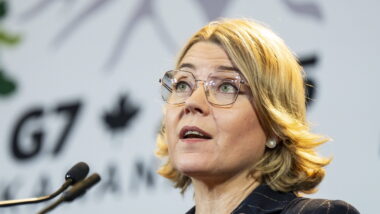Im Rahmen der re:publica 2010 wird am 15. April erstmalig im deutschsprachigen Raum das Thema Netzneutralität aus verschiedenen Blickwinkeln beleuchtet. Dazu konnten wir Sprecher/innen aus sieben Ländern für einen globalen Überblick gewinnen. Gefördert wird die Subkonferenz zu Netzneutralität freundlicherweise von der Bundeszentrale für politische Bildung. Die Subkonferenz Netzneutralität ist offen für alle Besucher der re:publica 2010 und findet in der Kalkscheune und später ab 16:00 Uhr im Friedrichstadtpalast statt. Es gibt keine Extra-Tickets nur für diese Subkonferenz.
Hier ist das Programm:
10:00 – 11:00 Uhr: Session: Netzneutralität: Eine Einführung
Hätte die Garagenfirma Google in den 1990er Jahren eine Chance gehabt, die damalige Marktführerin Altavista zu verdrängen, wenn die Deutsche Telekom ihren Kunden damals ausschliesslich die Suche mit Altavista angeboten hätte? Unter anderem diese Frage nach der Bedeutung von Exklusivabreden zwischen den Internet Service Providers (ISPs) und den Anbietern von Internetinhalten bildet Gegenstand einer politischen Auseinandersetzung, die heute unter dem Schlagwort “Network Neutrality” oder “Netzneutralität” geführt wird.
Befürworter eine gesetzlichen Regelung der Netzneutralität warnen, dass Verletzungen der Netzneutralität das Internet in seiner Eigenschaft als Innovationsmotor nachhaltig schwächen könnten, und dass sie auch die Grundrechte der Internetnutzer in Gefahr bringen könnten. Die Gegner einer Regelung betonen die Freiheit der ISPs, mit ihren Netzen zu tun und zu lassen, was sie wollen, und sie führen die Notwendigkeit der Amortisation der grossen Aufwendungen für die neue Breitbandinfrastruktur ins Feld. Einige Gegner argumentieren auch, die ISPs könnten sich eine solche Diskriminierung von Daten ohnehin nicht erlauben, weil sie ansonsten Marktanteile verlören.Simon Schlauri führt in das Thema der Netzneutralität ein und beschäftigt sich mit den Argumenten für und gegen eine gesetzliche Regelung dieses Grundsatzes.
11:00 – 12:00 Uhr: Session: Free Press and SaveTheInternet.com
I will discuss my experience of serving for several years in Washington DC under a Republican and Democratic Congress, and under a Republican and Democratic Presidency, at the center of legal and political fights on a range of issues, particularly on net neutrality. I will focus somewhat on the 2006 net neutrality bill, the 2008 Comcast-BitTorrent case, and the current net neutrality FCC proceeding.
Marvin Ammori von der US-Kampagne savetheinternet.com berichtet über die US-Debatte rund um Netzneutralität.
12: – 13:00 Uhr: Diskussion: Netzneutralität in Deutschland
Das Thema Netzneutralität wird auch in Deutschland immer aktueller. Spätestens mit der Verabschiedung des sogenannten Telekom-Paketes auf europäischer Ebene ist die Frage in der deutschen Politik angekommen, ob wir verlässliche Regeln für Netzneutralität brauchen – oder ob der Markt ausreicht. Genau diese Frage wollen wir in diesem Panel auch diskutieren.
Moderiert von Thorsten Schilling (BpB) diskutieren Constanze Kurz (CCC), Falk Lüke (VZBV), Cara Schwarz-Schilling (Bundesnetzagentur) und vielleicht auch die angefragte Deutsche Telekom.
14:00 – 15:00 Uhr: Session: The Politics of Deep-Packet-Inspections
What it can be used for, what it is really used for and why? An overview of different Use-Cases for DPI, the various methods of regulation and several associated political campaigns for the future of the internet.
Andreas Bogk vom (CCC) und Ralf Bendrath (netzpolitik.org) führen in die Technik und ihre Implikationen ein.
15:00 – 15:30 Uhr: Session: Who wants to restrict the Internet and how? The EU Telecoms Package and 3-strikes.
Copyright enforcement measures to address the Internet have many implications for users. It’s not just about cutting people off, such as the so-called “3-strikes”. Depending on how the measures are constructed, they could means other kinds of restrictions on the Internet as well. In Europe, Members of the European Parliament in Brussels and many European citizens, were taken by surprise when amendments enabling “3-strikes” mysteriously found their way into a review of telecoms law. The review, known as the Telecoms Package, went into EU law at the end of 2009. The question for Internet users is whether the Telecoms Package will prevent or permit 3-strikes. And what else will it allow? What is the relationship between copyright and the Internet? This presentation will discuss these questions, drawing on my PhD research.
Die britische Politologin Monica Horten berichtet über die europäische Debatte rund um das Telekom-Paket und was Internetsperrungen bei Urheberrechtsverstössen mit Netzneutralität zu tun hat.
15:30 – 16:00 Uhr: Session: Net Neutrality and threats to fundamental rights in europe.
Yet, entertainment industries see the Net as a threat to their existing business models, mostly based on controlling distribution channels of information. Worse, telecom operators see new opportunities in monetizing restrictions to Internet access. The interests of both groups are now converging with the help of a portion of the political class wary of the way the Net upsets their objective of controlling the public sphere so as to retain power. Several legislative projects are contemplating different ways of restricting access to the Net: from the provisions on operators’ contracts in the “Telecoms Package” directives to website blocking in the name of child protection, from the ongoing war against file sharing lead by the entertainment industries in Europe to the Anti-Counterfeiting Trade Agreement currently being negotiated at the global level…
Restrictions to our access to the Net, from the most obvious (cutoff in the “HADOPI” law in France, censorship in China), to the most subtle (blocking of selected aplications or services, bandwidth prioritization or reduction, etc.) are as many restrictions to our fundamental freedoms, including the most essential freedom of expression. Are these different regulatory projects turning into a global war on the Internet, therefore a war on our freedoms? What is the state of the play? What can we do as citizens?
Jeremie Zimmermann von der französischen Organisation La Quadrature du Net führt in die europäische Debatte ein.
16:00 – 17:00 Uhr: Session: Net Neutrality and Free Speech
When most people think free speech, they think of government censorship. But in fact the architecture of speech can be much more important. In my talk I examine the history of private censorship and the question of Net Neutrality as a speech doctrine for the 21st century.
In der internationalen Debatte um Netzneutralität kommt man um Tim Wu nicht herum. Wir freuen uns daher, dass wir den US-Professor für eine Keynote zum Thema gewinnen konnten.
17:00 – 17:30 Uhr: Session: Internet censorship worldwide
Einen Überblick über Internetzensur weltweit wird Lucie Morillon, die Internet-Koordinatorin von Reporters sans Frontiers, geben.
17:30 – 18:00 Uhr: Session: Do censorship and repression kill content on the Web?
What happen to websites and blogs after they get blocked? Do arrested and threatened bloggers and digital activists stop their online activities once they face a governmental threat?
Der tunesische Internet-Dissident Sami Ben Gharbia von adocacy.globalvoicesonline.org erzählt, was mit Bloggern und ihren Online-Aktivitäten passiert, die im Gefängnis landen.




Wird es von den Vorträgen einen Stream oder besser noch einem Mitschnitt zum Download geben?
Es würde mich freuen.
@Jamiro: Stream wird es auf jeden Fall geben. Einen Mitschnitt zum Download eventuell.
Hallo,
danke für den tollen Beitrag. Wo genau finde ich den Link bzw. den Download Link ?
Liebe Grüße